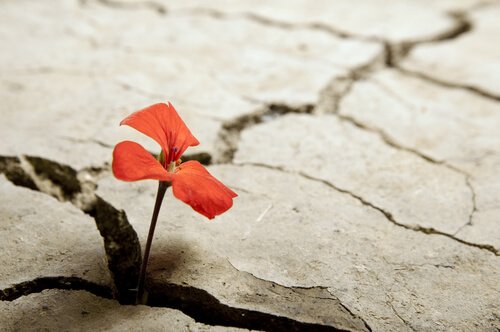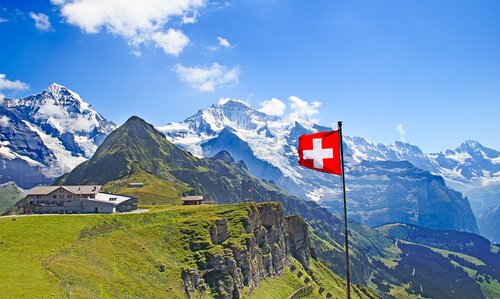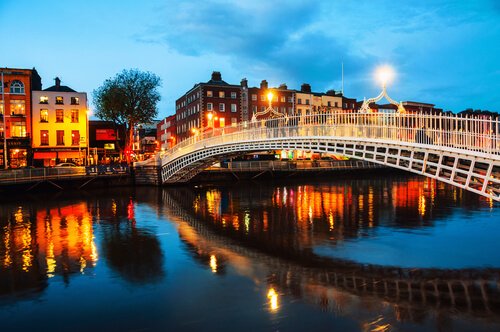Which Are the Most Resilient Countries?

A new study tells us which the most resilient countries in the world are. No matter where you’re from, you’re you. However, it’s clear that there are certain “components” that help us develop more or less. These components make up societies and cultures. Hence, we can classify them as more or less resilient.
“He who has a why to live for can bear almost any how.”
-Friedrich Nietzsche-
What is resilience?
Resilience is the ability to adapt to adverse circumstances. Having a high degree of resilience implies a person’s greater capacity to overcome complex situations, either due to their character (inheritance) o resources (learned). A resilient person demonstrates good stress management. In turn, they often show high self-esteem and a strong capacity to not get frustrated.
Resilience is a very positive trait since it allows an individual to use negative experiences as reinforcement. Overcoming a complex experience gives people a lot of experience that they’ll be able to use in their favor in the future.

Studying the most resilient countries
This study uses the Global Resilience Index as a reference. This index evaluates nine factors grouped into three categories. This determines the ability of a country’s inhabitants to recover from crises. The questions have to do with elements such as risk of natural disasters, the nation’s infrastructure, its political stability, its values, and levels of corruption.
Users have to respond to issues such as their behavior in the face of changes. In other words, this index studies elements such as attitudes toward certain critical situations, emotional ups and downs, the ability to trust other people, their tolerance of criticism, and their ability to overcome, among others.
Meet the most resilient countries in the world
We must remember that this test was done in a business context, but it shows a lot about the people of each country. That is, depending on how a country’s inhabitants are, an international company may decide whether or not to conduct business in that country.
Switzerland
According to the results, the most resilient country in the world is Switzerland. It has very high confidence levels in its economy, little fear of natural disasters, and a very high supply chain.
According to the results, Switzerland has enormous punctuality regarding its trains and public transportation. In addition, it shows great strength in the face of international crises.

Norway
Norway is in second place. Although they don’t have such a high level of economic and supply confidence as Switzerland, they do have a huge confidence in their tranquility when it comes to responding to natural disasters.
Ireland
Ireland sits in third place. Its inhabitants demonstrate a great ability to react to natural disasters, but not so much in the face of supply or economic issues.

Other interesting data
Completing the top ten are Germany, Luxembourg, the Netherlands, the United States, Canada, Australia, and Denmark.
Spain takes spot 25 on the list. Although it may seem low at first, it’s not a bad result considering that more than 100 countries were studied. Spain shows an interesting average regarding economic reaction and natural disasters. However, this country’s perception of corruption and a certain defeatist attitude lowers its score.
But the least resilient country of those studied was Venezuela. Its susceptibility to natural disasters and a high degree of corruption earned it the last spot. Kazakhstan and the Dominican Republic round out the bottom three.
In this ranking, we find that everything focuses on the economy and businesses in the most resilient countries in the world. So, do you agree with the results?
“The world breaks everyone and afterward many are strong at the broken places.”
-Ernest Hemingway-
This text is provided for informational purposes only and does not replace consultation with a professional. If in doubt, consult your specialist.








